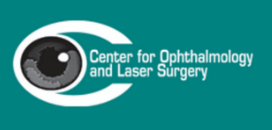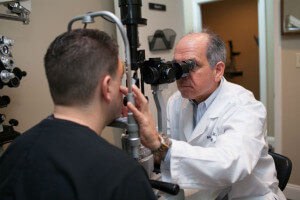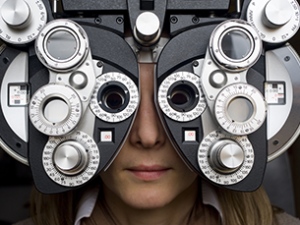
How to Maintain Great Eye Health
Don’t take your eyes for granted, you can protect your sight with these 5 easy tips:
1. Make Sure to Visit Your Eye Doctor Regularly
Everyone, even young children, needs to get their eyes examined regularly.
It will help you protect your sight and help you see at your best.
Eye exams with preventive eye care can and will help find and prevent some eye diseases, such as glaucoma, that have no symptoms. It’s important to diagnosis these diseases early on, when they’re easier to treat.
Depending on your eye health needs, you can see either an optometrist or an ophthalmologist for your eye exam. Dr. Loeffler is a board-certified ophthalmologist and eye doctor who specializes in eye care in the Lighthouse point, Pompano Beach and Fort Lauderdale areas.
Dr. Loeffler offers comprehensive eye health examinations and treatments for many eye conditions.
The Center for Ophthalmology and Laser Surgery offers high quality vision care and excellent ocular diagnostic services including but not limited to:
Eye exams to assess eye health as well as vision function.
Testing and treatment of ocular diseases such as cataracts and glaucoma.
Advanced lens implants – Crystalens, ReSTOR, Toric, and Tecnis.
Optical services including contact lens fitting.
Cosmetics – Botox, blepharoplasty, and eyelid reconstruction
LenSx – the first blade-free laser cleared for cataract surgery.
2. Work at a Computer all day ?
Staring at your computer screen for too long can cause:
Blurry vision,
Eyestrain,
Dry eyes,
Headaches,
Trouble focusing at a distance,
Neck and shoulder pain.
Taking the following steps will help to protect your eyes:
Try to avoid glares on your computer from windows and lights. Use an anti-glare screen if needed. If your eyes are dry, blink more. Make sure your glasses or contact lens prescription is up-to-date and adequate for computer use. Some people may need glasses to help with contrast, glare, and eye strain when using a computer. Position your computer so that your eyes are level with the top of the monitor. This allows you to look slightly down at the screen.
Every 20 minutes, rest your eyes by looking 20 feet away for 20 seconds.
3. Quit Smoking
Smoking makes you more likely to get cataracts, and can cause optic nerve damage, and macular degeneration. If you’ve tried to quit smoking before and started smoking again, keep trying.
The more times you try to quit smoking, the more likely you are to succeed.
4. Eat Better for Better Vision
Protecting your eyes starts with the food on your plate. Nutrients such as omega-3 fatty acids, lutein, zinc, and vitamins C and E might help ward off age-related vision problems such as macular degeneration and cataracts, studies show.
Regularly eating these foods can help lead to good eye health:
Eat more Green, leafy vegetables such as kale,collards and spinach,
Tuna, Salmon, and other oily fish
Nuts, Beans, Eggs and other non-meat protein sources
Oranges and other citrus fruits or juices
Eating a well-balanced diet will also help you maintain a healthier weight, which makes you less likely to get obesity-related diseases such as type 2 diabetes. Diabetes is the leading cause of blindness in adults.
5. Wear Sunglasses
The right kind of sunglasses will help protect your eyes from the sun’s ultraviolet (UV) rays.
Too much UV exposure makes you more likely to get cataracts and macular degeneration.
Choose sunglasses that block 99% to 100% of both UVA and UVB rays. Wraparound lenses help protect your eyes from the side. Polarized lenses will help reduce glare when driving.
If you wear contact lenses, some offer UV protection. It’s still a good idea to wear sunglasses for more protection, though.
When receiving your comprehensive eye exam make sure to discuss your personal and family medical history. Request vision tests to see if you have farsightedness, nearsightedness, astigmatism , or presbyopia (age-related vision changes), have tests to see how well your eyes work together, make sure to get your Eye pressure and optic nerve tests to check if you have glaucoma.
Have your eyes dilated and checked with a External and microscopic examination of your eyes before and after dilation.





